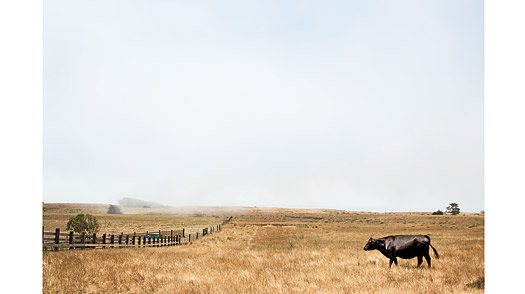
One of more than 100 cattle on Bill Niman's California property, home of an ongoing experiment in sustainable ranching.
(7 of 8)
How willing are consumers to rethink the way they shop for--and eat--food? For most people, price will remain the biggest obstacle. Organic food continues to cost on average several times more than its conventional counterparts, and no one goes to farmers' markets for bargains. But not all costs can be measured by a price tag. Once you factor in crop subsidies, ecological damage and what we pay in health-care bills after our fatty, sugary diet makes us sick, conventionally produced food looks a lot pricier.
What we really need to do is something Americans have never done well, and that's to quit thinking big. We already eat four times as much meat and dairy as the rest of the world, and there's not a nutritionist on the planet who would argue that 24-oz. steaks and mounds of buttery mashed potatoes are what any person needs to stay alive. "The idea is that healthy and good-tasting food should be available to everyone," says Hahn Niman. "The food system should be geared toward that."
Whether that happens will ultimately come down to all of us, since we have the chance to choose better food three times a day (or more often, if we're particularly hungry). It's true that most of us would prefer not to think too much about where our food comes from or what it's doing to the planet--after all, as Chipotle's Ells points out, eating is not exactly a "heady intellectual event." But if there's one difference between industrial agriculture and the emerging alternative, it's that very thing: consciousness. Niman takes care with each of his cattle, just as an organic farmer takes care of his produce and smart shoppers take care with what they put in their shopping cart and on the family dinner table. The industrial food system fills us up but leaves us empty--it's based on selective forgetting. But what we eat--how it's raised and how it gets to us--has consequences that can't be ignored any longer.
The Tale of Two Cattle
How did your hamburger get to your plate--and what did it eat along the way? The journey of beef illustrates the great American food chain
[This article contains a table. Please see hardcopy of magazine or PDF.]
